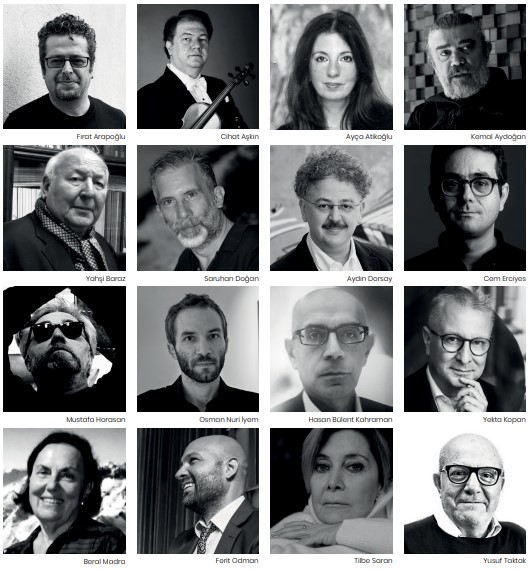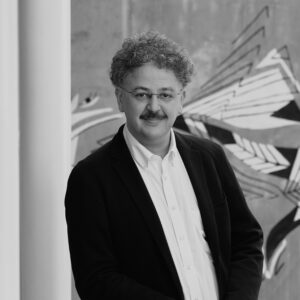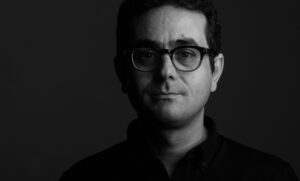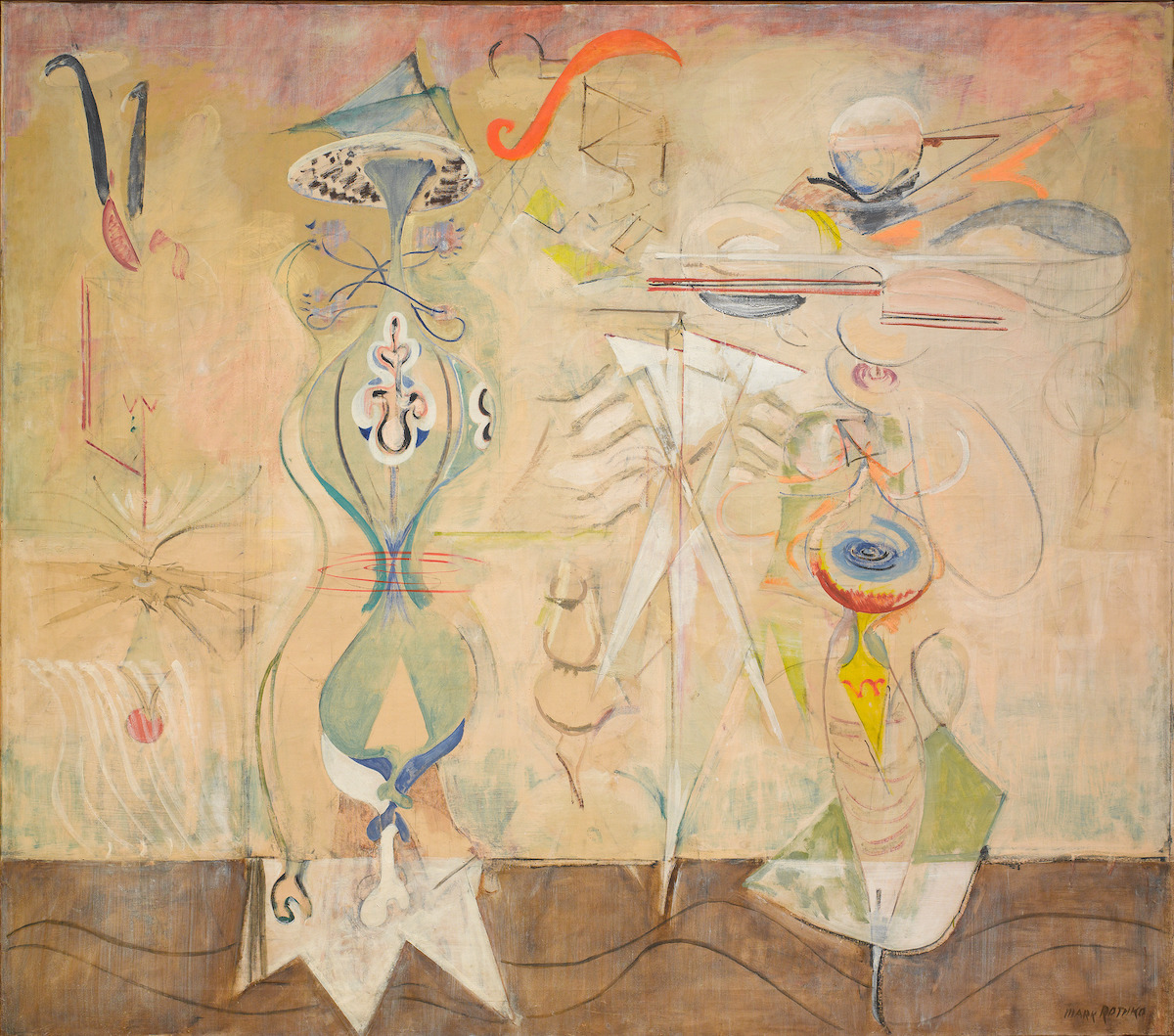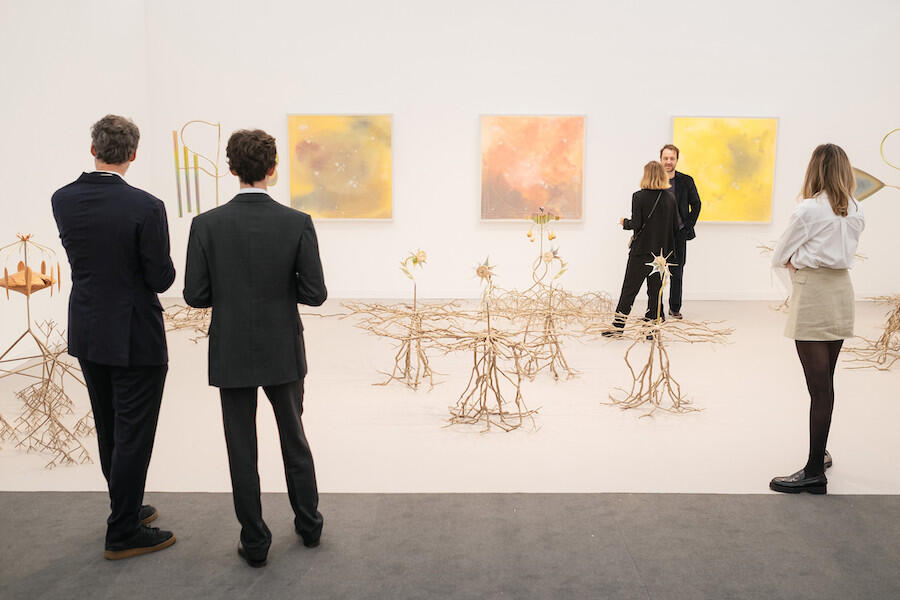As the country continues to face numerous problems and uncertainties, including recent earthquakes, election process and its aftermath, deepening economic crises, immigration issues, and now a housing crises, autumn has arrived. Despite these challenges, autumn is known for being a vibrant season for the world of culture and arts. Considering all of this data, we have asked important names in the field to interpret the near future during the culture and arts season. From the answers we have received, we conclude that it is necessary to remain optimistic, not give up the fight, and look to the future with hope, despite all the negativity in the country.
Fırat Arapoğlu: Problems of freedom of speech
Curator, Art Historian

General elections had a significant impact on politics, which in turn affected contemporary art events. It has become apparent that the AKP is an authoritarian party-state that seeks to suppress opposition by any means necessary. Moreover, the government is very skilled at consistently doing the opposite of what it claims to do. For instance, despite his previous statements, during the second round of the presidential election, the president visited the Istanbul Modern Art Museum on May 19, 2023: “Throughout their campaign, they resorted to any means necessary, from setting our streets ablaze to hurling insults that were well beyond the bounds of decency and humanity. They also threatened our artists who dared to express dissenting opinions. By placing them under immense peer pressure and creating an atmosphere of fear, they attempted to intimidate these individuals into submission. Their true intentions were made clear through the tension they created.Unfortunately, they did not give up this rude attitude towards works that were directly for the benefit of the country, the nation and even our artists.” It was during this visit that these actions were brought to light. During this visit Mehmet Nuri Ersoy, Fahrettin Altun, İbrahim Kalın, Bülent Eczacıbaşı, Ferit Şahenk and Serdar Bilgili were also accompanying him.
Freedom of expression remains a contentious issue in Turkey, which is having a negative impact on the country’s contemporary art scene. Recently, there has been a debate over the appointment of Iwona Blazwick as the curator of the Istanbul Biennial, with some disregarding the decision of the Istanbul Foundation for Culture and Arts advisory board to recommend Defne Ayas as the curator for the 2024 edition. The debate centers around censorship and artistic freedom. Blazwick reportedly canceled the Wojciech Pędźich exhibition during her tenure as the director of Whitechapel Gallery, citing concerns about potential political sensitivities. This has raised concerns about whether Blazwick will be able to uphold the principles of artistic freedom and independence while curating the Istanbul Biennial.
Moreover, critics believe that Blazwick’s appointment as curator is a continuation of the Istanbul Biennial’s shift towards an increasingly conservative and government-friendly approach – as has always been the case in recent editions. The criticisms agree that choosing a curator who can work closely with politics undermines the biennial’s reputation as a platform for critical and progressive art. Expecting İKSV – or any other institution in Turkey – to be transparent is only a utopia in the political, economic and cultural climate we are in.
The economic crisis in Turkey and the continuous depreciation of the Turkish Lira against the euro and the dollar are important issues that can affect the 2023-2024 season. These factors are likely to reduce people’s purchasing power, which, in turn, will impact the production, distribution, and consumption of art. The increase in costs of exhibition areas, personnel employment, and art production materials are among the direct factors that will be affected. These factors will make it challenging to organize large-scale events, which is evident from the recent activities of museums and the scale of the events.
The reduction in the number of international visitors to Turkey will also significantly impact the situation. Due to the ongoing economic crisis and political instability, international tourists have been discouraged from visiting the country for a long time. Consequently, decreasing funds for contemporary art in Turkey is possible. The government’s view of contemporary art has always been problematic in Turkey, regardless of the financial crisis. However, given the current situation, there is a high likelihood of further cuts in funding for the arts. Additionally, the private sector may also be selective in providing financial support, making it even more challenging to organize large-scale art exhibitions.
In addition to these economic factors, the political climate in Turkey directly influences contemporary art events. The government suppresses all social opposition and this is reflected in the arts. Artists who produce works criticizing the government or academics, critics and writers who express their opinions always live under the fear of being arrested, prosecuted or lynched. This situation has created an environment of fear and self-censorship in art.
Cihat Aşkın: Art conquers all
Violin Virtuoso
Turkey has recently been hit by awful earthquakes, complex election processes that deeply affected every segment of society, a deepening economic crisis, the depreciation of the once solid Turkish currency, the heart-breaking immigrant crisis and its repercussions, and incessant housing problems. Despite all these difficulties, autumn is quietly approaching. Although autumn is known as a vibrant and creative season for the arts and culture scene it is worrisome to welcome this time under clouds of despair. However, even behind this dark sky, stars can shine. Large productions become challenging in an environment where despair reigns due to economic struggles. However, art defies all these difficulties. As in every era artists never stop expressing their creative minds despite all the uncertainty. The power of art touches people’s hearts, reflects their emotions, and revives hope. Even though dark clouds surround, the sun can shine again- thanks to art.
Playing my violin allows me to express my deepest emotions and connect me with others. Through music, walls can be broken down, hearts can be softened, and hope can be restored. I hold on to my work and music as a light source even during difficult times. I want to be a beacon who carries the message of hope through music, even in the darkest times. I believe that art has the power to nurture hope, even amid despair and economic struggles. My hope lies within the strings of my violin. Through its voice, I can express my deepest emotions and reach the hearts of others. Music can break down walls, soften hearts, and restore hope. That’s why I cling to my work and music more strongly, even in times of hardship. I strive to be a beacon of light, illuminating the path with the radiance of music, even amidst the darkest of shadows. Art has the power to nurture the seeds of hope that lie deep within our hearts, allowing them to flourish and grow.
Ayça Atikoğlu: Hatay Academy Orchestra and Istanbul AKM
Journalist

Ali Uğur, a music teacher, had enough of people solely associating Hatay, a city rich in culture and history, with the famous dessert künefe and baba ganuş. As a result, he established the Hatay Academy Orchestra three years ago. The orchestra is composed of musicians, teachers, and students who have graduated from conservatories. Life, not blood, is what connects them. Despite the pandemic, they have managed to do an incredible job in the past year and a half, even though they did not have a proper rehearsal venue. One and a half of the three years have passed with the pandemic. The group has completed two projects with the support of the European Union. Their repertoire includes Baroque pieces and works by Mozart and Neşet Ertaş. Although they perform folk songs in Arabic and Kurdish, all of their songs are arranged symphonically. Unfortunately, they lost three members in the earthquake and the rest of the group was forced to disperse to different cities as they became homeless. After the earthquake, a CRR concert was organized in Istanbul by the Istanbul Metropolitan Municipality. The Hatay Academy Orchestra, who were invited to perform, initially struggled to perform due to the emotional impact of the disaster. However, as they continued to play, they began to recover and heal through the power of music. Despite the sadness they carried, they shone brightly on stage with their entrusted instruments. The orchestra dreams of having a cultural center that can withstand natural disasters, as they never had one before.
The Ataturk Cultural Center, known as AKM, was established in 1946 during the reign of Lütfi Kırdar. Unfortunately, it burned down just a year after its opening in 1969. It was then reopened in 1978. AKM has hosted numerous concerts, films, plays, and ballets that have left unforgettable memories in the lives of many Istanbulites. Over the years, AKM has welcomed countless artists who have significantly impacted the century, including Rudolf Nureyev and Maurice Béjart.
The cultural center, which had been closed for a total of 21 years during its 53-year history, reopened for the third time this year after being closed for 13 years. However, one important aspect was overlooked in the new AKM: acoustics. The acoustic issue summarizes the new AKM’s shortcomings – while the venue is stylish, it does not prioritize sound quality for artistic performances.
Previously, each group had their rehearsal hall. However, the new building has only one rehearsal hall for the opera and symphony. Last season, the opera singers did not use the hall, but they will be using it this season. As a result, there is a question as to who will be using the hall in the morning since there is a recital taking place in the evening. Another issue is that only one toilet is reserved for artists in the building, which can cause problems. Additionally, the lighting in the saz opening area is inadequate, and it is difficult to read the notes. The majority of the building is reserved for non-art related functions, such as offices and restaurants, leaving the darker areas for artists. As the new season approaches, it is my hope that the Hatay Academy Orchestra will be able to address these issues and make necessary improvements to the AKM.
Kemal Aydoğan: This might be detrimental to the art world
Founder of Moda Stage, Theater director
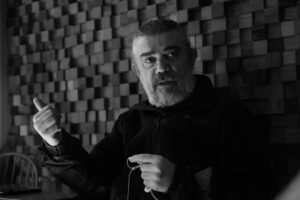
The state of the economy in Turkey is causing many social problems, likely leading to severe depression for the entire society. The ruling approach that prioritizes economic success over everything else is not supportive of activities that are deemed ‘useless’, such as art. It is not difficult to predict that this approach, which regards all non-economic activities as a burden, will be detrimental to the art community and those who support it from the right and liberal front. The economic difficulties faced by art consumers are expected to significantly impact art in the winter months, resulting in a decrease in the number of people attending art events. Although art businesses owned by capital may try to appear successful, the general unhappiness is likely to affect them negatively. The future of art will depend on the artists and art institutions that truly believe in the power of art and are dedicated to it. It seems that those who still have hope for the world will face those who have given up in this competition.
Yahşi Baraz: Looking from a wider perspective
Founder of Galeri Baraz
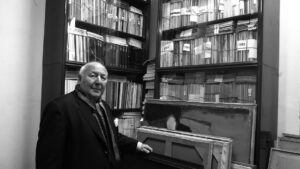
Today, Turkish painting is facing several challenges and problems. In order to evaluate the situation correctly, I would like to comment on a wide range of topics. Before delving into the current state of artistic activities, it’s essential to acknowledge the realities of the country. Self-criticism is a prerequisite for development, which is why I should start my speech by drawing attention to Turkey’s political situation and socio-economic data. These factors determine a country’s place in the world, and their development in areas such as science and art. Societies that can solve their problems economically can later bring their presence to the agenda in other areas because priority is given to maintaining physical existence and basic needs.
Natural disasters, including earthquakes, can cause immense damage, especially in underdeveloped areas. The inability to heal these wounds is often a result of economic collapse and lack of development. It is easy to see art’s dire situation in such circumstances. However, I have hope that enlightened individuals will create works of art that will be remembered throughout history and support the cause of enlightenment. It is their responsibility to do so.
Various issues, ranging from gender equality to the potential impact of refugees on the future, require thoughtful discussion as they are all part of life. While our country grapples with its own problems, the Turkish art market is also facing challenges. The economic crisis and cultural corruption have prevented the formation of new collectors, and galleries have blurred the line between “painter” and “painting”.
Determining the correct hierarchy of art concepts can be a difficult task. However, the primary responsibility falls upon art critics. Without Western-style, ethical art critics who can write and convey the unadulterated truth impartially, it is impossible to determine the truth of the matter objectively. Otherwise, personal relationships may influence art criticism, leading to biased reviews. Therefore, it is imperative to have principled art critics who can provide a factual and objective assessment of art, free from any external influences.
There is an issue with the limited number of museums in Turkey, which are unable to fulfill their missions and support artists by purchasing their works. To gain more attention and recognition for Turkish painters, museums and art institutions should consider inviting important foreign artists and organizing exhibitions of successful individuals from around the world. This initiative may attract foreign collectors’ attention and boost Turkey’s art industry. It is worth noting that while there were once nearly thirty active art magazines in the country, today there are only a handful.
I want to reflect on the current state of galleries and art auctions. Recently, some galleries and auction houses have been selling very poor-quality works under the misleading title of ‘museum works’. This trend has been particularly noticeable since the first Contemporary Istanbul exhibition in 2006, which attracted significant attention from the West. However, over the years, this interest has declined.
The art scene in our country has been lacking new and similar quality organizations, resulting in a significant decline since 2017. Foreign gallerists have stopped participating in our art fairs. Their main reason is that they were not finding what they expected. However, if foreign galleries had constant contact with Turkey, it could integrate us into the Western art environment. The scarcity of works worth exhibiting in the fairs and the fact that they were always the same created boredom among foreign gallerists. Additionally, Turkish collectors and museums’ lack of purchases also caused foreign gallerists to lose interest in our art fairs.
As a gallery owner, it is my duty to share my experiences with younger generations. Therefore, I engage in visual and written archive work besides my primary profession. This year marks the 10th death anniversary of the renowned painter Burhan Doğançay, and I am currently working on a book dedicated to him. While our years of friendship have been influential in writing this book, I believe the focus should be on his examination and portrayal of society’s perspective, which is particularly relevant now. The past shapes the future, and I hope this book will serve as an example.
Saruhan Doğan: Detached from life
Collector, Economist

The art market is often assumed to suffer during economic downturns, but the 2008 crisis proved otherwise. The art market is largely driven by high-income buyers who are less affected by macroeconomic factors. Therefore, art sales will not decline this season despite any negative economic news. I hope my belief proves to be true. Exhibitions, galleries, museums, and institutions are all doing their best, but it seems as if a sense of detachment from life surrounds us. This might be attributed to our current political and economic difficulties. Despite all the efforts of some individuals who seek to demonize our joy of life, good things are still happening in the art scene. For instance, the exhibition in Feshane demonstrated that the public still follows contemporary art with interest. However, there is a sense of dead soil that has been poured over us, even the biennial could not bring any vitality. This is not a critique of the art or the work being done. Unfortunately, the passing of Esat Cavit Başak has gone unnoticed and unnoted by many, except for a select few. He had excluded himself from the art scene, whatever it was, but he remains a very important loss. Today, the younger generation may not even know his name. This is what I mean by dead soil.
The way contemporary art is perceived by the masses is changing and this is an important issue that needs to be considered. With the rise of social media and our decreasing attention spans, there seems to be a reduction in the amount of attention given to art. People want to be entertained immediately and if something doesn’t immediately grab their attention, they move on to the next thing. This can be attributed to the decrease in art criticism and publishing channels. It’s unfair to expect art to thrive in an environment where curators and critics have fewer opportunities to voice their opinions and make a living. It’s almost considered a ridiculous dream to pursue these professions.
Aydın Dorsay: We will continue to try
Director of Borusan Sanat
During times of uncertainty in the field of culture and art, just like in any other field, we strive to make our work compatible and healing in the face of the difficulties we encounter. We are exploring new ways to move forward amidst these changes by working together. We are committed to improving our work and making it sustainable. As an institution that values its principles, we endeavor to act with this dedication in all our work under Borusan Sanat’s umbrella.
As the season begins, autumn is a time when we are active and excited for the new season ahead. Every year, we carefully prepare innovative programs that offer content that appeals to our different senses and emotions. In our work, we prioritize emphasizing music’s healing, unifying, and sustainable power.
In the realm of culture and arts, implementing programs that complement each other while respecting equal opportunities will be productive soon. Creating space for young talents who shine in their respective fields is crucial by giving them opportunities to showcase their works and perform their first shows. We place great emphasis on these initiatives in the field of culture and arts. Continuously presenting new music to the audience in both classical and contemporary realms will help us sustain the continuity of music, and hence culture and art.
Cem Erciyes: One day, for sure…
Doğan Books Publishing Editor
As we move into autumn, it’s becoming increasingly clear that Turkish arts and culture sector has been long suffering. There are two main contributing factors: economic struggles and political tensions. Sadly, the situation was further exacerbated by a natural disaster earlier this year. While new books, exhibitions, films, and concerts are set to debut in September, there’s a palpable sense that something is missing.
I had hoped the election results would bring joy and hope to Turkey’s arts and culture scene. Had the opposition candidate won, there would have been a sense of elation. Even amid economic and political crises, the hope for a better future would have motivated all artists and art lovers. Unfortunately, that was not the case. The government continues increasing pressure on elements representing the Western lifestyle and universal culture. This has resulted in countless festivals and concerts being canceled or banned throughout the summer. The wall built to block the entertainment center has grown higher. Every day, someone demonstrates in front of the Feshane, (one of the biggest contemporary exhibitions opened in recent years,) and tries to raid the exhibition. Authors face lawsuits and decisions are made to confiscate books. Meanwhile, ticket and book prices continue to rise as the exchange rate breaks records.
It is unfortunate to see that Turkey’s educated middle class is facing many difficulties. This group is the main supporter and promoter of arts and culture in our country. However, due to the restrictive political atmosphere that suppresses freedom of thought and expression, bans festivals and exhibitions, artistic production is also negatively impacted. As a result, the supply and demand of arts and culture is in decline. It is very unlikely that the arts and culture scene will bloom in the short run. (for the next year or two.) Moreover, the situation may worsen if the AK Party comes to power in Istanbul again after the municipal elections. This would result in blocking an important channel that brings cultural life to the city. Nevertheless, we shall always remain optimistic when it comes to art. Despite the atmosphere and agenda, artists will continue to produce, and writers will write. One day, their work will see the light of day.
Mustafa Horasan: Nothing stays the same, neither joy nor sadness
Painter
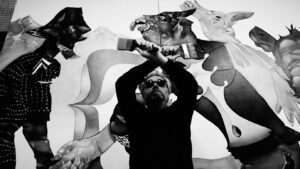
As you have mentioned, we are currently facing most dire times. However, artists continue to work tirelessly. Regardless of the fact that they have materials or not, even in the midst of nothingness, they will create something. Although this may not be ideal, the greater the value placed on the artist and their ability to improve in every sense, the higher the quality of the product will be. Despite the ongoing troubled times in this country, many artists have produced magnificent works even in prison or exile. The issue is that we don’t have a proper functioning system which adds value to artworks. I still believe an art market has yet to be established. Living abroad is a dream for many young artists. However, back at home, there is often a feeling of both hope and hopelessness about the future. Yes the season usually starts round in October but the questions is how will it start. Many galleries and art venues are either closing down or hosting exhibitions produced with low budgets. It is common now to witness some amateurs and semi-professionals who are financially well-off doing business. The current situation is not encouraging, and it is important to consider what can be done to improve it. We need to scale down on productions and scale up on ideas. We do not require any help, we are accustomed to get along. I hope we avoid the proliferation of cheap, sellable works. International connections are becoming increasingly vital, and every initiative counts. I wish all of my fellow artists the best of luck. Sometimes, we must find the silver lining and go with the flow in difficult situations. Finally, I would like to mention the name of my last exhibition: “Ne gam baki ne dem baki…” meaning that nothing is permanent, everything changes and nothing stays the same, neither joy, nor sadness.
Osman Nuri İyem: Deep wounds
Director of Evin Art Gallery, artist
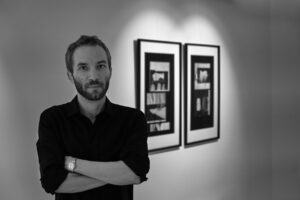
It is undeniable that these problems deeply affect the country as a whole. Unfortunately, there are even deeper divisions in the art world. The main reason for this is that our social structure does not consider art a necessity. While some view it as a source of pleasure, luxury, prestige, and investment, others see it as a corrupting force in society…
Our country’s economic and social instability has inevitably made it more difficult for our art world compared to countries with stable conditions. Sadly, many artists and institutions in Turkey are forced to find alternative means to support themselves beyond their passion for art. This situation highlights the devotion and dedication of these individuals to their art despite the challenges they face. We can only hope that everyone involved in the arts community will continue to persevere through these difficult times.
Hasan Bülent Kahraman: Increased ignorance in the society
Curator
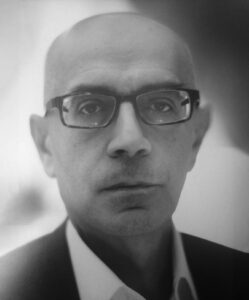
As autumn approaches, art events such as exhibitions, concerts, conferences and shows become routine worldwide, including in Türkiye. Fairs often accompany these events. However, it is important to note that art can be divided into high art and popular art. While popular art has an entertaining quality, it does not interest me. Unfortunately, capitalist relations tend to exploit the entertainment value of serious art, leading to a crisis in the world of high art. The concept of carnival and festival are valuable and unique, but the same cannot be said for fairs, which are often associated with commercialization. In Turkey, the cultural environment often leads to diluting art into mere entertainment, which is a worrying trend.
I want to talk about the contradiction that I mentioned earlier. It shows my expectation to achieve mastery in an honest, serious, and responsible art, regardless of the field. But the problem is that the art today lacks these qualities. This doesn’t mean that high art is snobbish or condescending. In fact, that kind of attitude comes from a lack of knowledge about the subject matter. High art opposes this kind of approach and strives to maintain its integrity.
Turkey is not a place where democracy thrives. Local government’s art events, which is handled by municipalities, never rise above a certain level. Anti-democratic attitudes are not only seen in bans on festivals and concerts, but also in a pervasive attitude that has infiltrated and poisoned all aspects of life. This anti-democratic understanding and practice violates rights in the broadest sense. A sovereignty that denies the right to speak and express oneself beyond the ordinary is also an anti-democratic attitude. Anyone who contributes to an environment where individuals are denied their rights on a small scale, and where everyone wants to have everything first with petty-bourgeois radicalism, is fueling the anti-democratic fire that the government (in the most abstract and concrete sense) has started. This means that the existence of art itself should be linked to the existence of democracy in the coming period.
There is a third element that needs to be addressed. In the past, some people were referred to as ‘multicultural’, and this characterization still holds true in everyday conversations in the foreign languages that I know. In my opinion, people who have reached a certain level of social status have an obligation to be cultured. However, unfortunately, except for a small circle, people no longer have any connection with culture. How many people around you read books? Do we even read ourselves? In the world of Netflix and TV shows, reading has become a lost art. To add to this, the ignorance that comes with this condition, and yes, let’s not be afraid to use the word ‘ignorance’, is prevalent in people who have studied in the best schools in Turkey, are Westerners, know several languages and belong to high-income groups. While we have priority expectations from the ‘people’, the 12 million rural folks who have migrated to big cities in the last decade, the real issue is the ignorance adopted by those in the ‘high’ circles.
If we consider that this group is particularly interested in the arts and cultural activities, we can predict their approach to the presented work. The work of art is divergent. It changes as you relate to it. With that feature, it becomes independent from its creator. Let’s define the viewing of the work as a kind of ‘reading’. How will a society that does not read in general terms read a work of art? A work of art can only be reproduced through culture. A work viewed without reproduction is only an object of consumption, and our environment is extremely adept at turning everything into an object of consumption. I expect such an art environment, or rather I don’t expect it.
Yekta Kopan: Art is everlasting
Writer
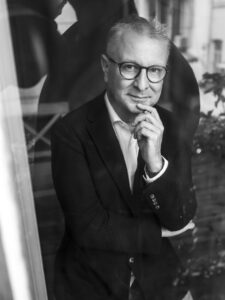
At the outset, let me express what I intend to reiterate later: Art production requires courage, innovation, flexibility, and perseverance. This also means that artists need to be adaptable to changing circumstances. While we can say that art production has overcome numerous difficult periods in Turkey and around the world through new artistic expressions, looking at it through a narrow lens is short-sighted. Unfortunately, we cannot address our current challenges solely through the “power of art.” This summer, budgetary constraints led to the cancellation of numerous stage performances and festivals, while some books were deemed objectionable. Artists also faced direct or indirect pressure, which triggered a self-censorship mechanism.
Unfortunately, attempts have been made to hinder solidarity and cooperation in the arts. The lack of a pluralistic, diverse, democratic, and supportive art environment makes it difficult to maintain a hopeful outlook for the future. Take the publishing world, for example. Instead of finding solutions to issues like increasing costs, the paper shortage, royalties for translated books, market competition, and taxation, publishers and authors struggle with censorship and confiscated books. Similar problems are also prevalent in other branches of the arts, from music to theatre, from performing arts to cinema. The sociological effects of an increasingly barren cultural scene are already visible, and this is a dangerous cycle. A barren cultural scene will lead to deeper social problems, which in turn will weaken collective memory and deepen polarization. As we approach autumn, we will also celebrate the 100th anniversary of our Republic. While many events will be held and grandiose projects will be undertaken, it is important to acknowledge that the culture and art world is not in a good mood.
Beral Madra: Art organizations are vital
Curator

The most concerning issue in your question is the ‘near future’ concept! I consulted an artificial intelligence for an answer, but it wasn’t convincing. In the current global order, the near future is the smallest unit of time, equivalent to the speed of light itself. Rapid scientific advancements, technological changes, political conflicts, and economic crises happen continuously and change our future in every possible way; meanwhile, the past is fading away at the same pace. Predicting the future, whether near or distant, is now more challenging than ever. Especially in countries like ours where democracy is compromised and idea of the future is bleak. In these conditions, we are left with the uncanny feeling and tension between ‘hope and despair’. To overcome this feeling of uncertainty, we must rely on creative, cultivated minds capable of solving this problem.
Many people were left exhausted, frustrated, and hopeless by the unresolved issues of the 20th century, including colonialism, mass wars, nuclear threats, environmental pollution, issues of race, religion, gender, and class inequality. However, with the advent of the 21st century, people have entered with a renewed sense of optimism and hope, believing that these issues will be addressed due to the nature of progress. The impacts of the developments that took place in the first quarter of this century are still being felt globally, albeit in new forms that pose new challenges. Despite the efforts being made not to lose hope, with reliance on solutions offered by artistic, scientific and technological advancements, people still experience the uncanny and tense characteristics of these developments. Today’s art production is remarkably versatile in terms of its political, cultural, and social definitions, and it is of vital importance in periods of social and political destruction. Societies that realize the strong reflection of hope in works of art and attach importance to art production in the context of relational aesthetics create free, independent, and effective spaces and systems within the neo-capitalist order. Turkey has 51 state universities and 25 private universities with art and design faculties. The systems and functions of public and private institutions and organizations that cater to the needs of academicians who teach and produce at these universities and the creative masses who graduate every year must be continually updated.
It is important to note that there have been delays in the implementation of art and cultural policies by both the state and the private sector. However, despite the ongoing pandemic in Turkey, art production has continued with the support of both private and public initiatives. This is evident through the Istanbul, Çanakkale, Mardin, and Sinop biennials, the return of Feshane to its original function by IMM, and the presentation of 400 works of art by 19 curators to the public. These are indications that no force can hinder the production of art. Artists from all disciplines in the country continue to produce thought-provoking, visually stunning, and performative works that are unique to the present and future. It is my hope that those who reject these truths based on religion and medieval traditions will soon recognize the futility of their efforts. It’s important for artists, art experts, galleries, art centers, museums, and collectors who are concerned about the negative impact of Turkey’s current political, economic, and cultural climate on the art and cultural environment to take action. They should reach out to Chto Delat (What is to be done?) as soon as possible and work together with urgency, organization, solidarity, and resistance. One way to start this process could be to host a major international art and culture congress in October, coinciding with the centenary of the Republic. It would be great if existing NGOs could take on this task.
Ferit Odman: Utopias are all beautiful
Musician

Like many others, the arts and culture industry is currently facing enormous economic difficulties. As a musician, I have noticed that the budget I set aside for a concert, which is usually scheduled 2-3 months in advance, is often reduced by 30%-40% by the time the concert happens. The increasing costs associated with holding a concert, such as transportation and accommodation, backline rentals, and sound and lighting system rentals, have become so high that making any calculations in Turkish Lira is becoming difficult. Unfortunately, due to these financial challenges, many organizations may decide not to hold concerts in the near future.
Unfortunately, the art sector is often the first to suffer during economic crises. Even though the global art world is slowly recovering from the pandemic, the upcoming season in Turkey will be challenging for all of us. Jazz clubs and festivals are also struggling, as small clubs are unable to bring musicians from abroad, and festivals will likely face the same issue. This will result in Istanbul moving further away from the global art scene. Although my words may sound a bit depressing, I hope it turns out that I was in the wrong and everything will go smoothly. After all, utopias are beautiful.
Tilbe Saran: We are tired and discouraged
Actor
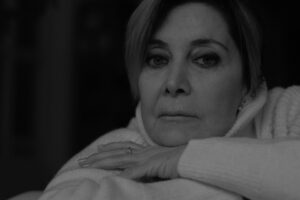
You did a great job summarizing the current situation in your question. We are feeling discouraged and exhausted due to the ongoing chaos in our country. Everywhere we turn, we see evidence of greed and the destruction of nature that cannot be undone. Our memories of the past are being destroyed, and the water crisis is staring us in the face. It’s overwhelming. That’s why art has the power to heal us and bring us together. We can create something beautiful and meaningful by working together with our minds and consciences.
Yusuf Taktak: We are used to this situation
Painter
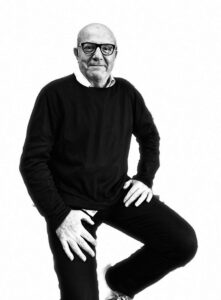
Is creativity at a higher level in a happy environment? I do not think so! Whenever I talk to my friends, they often express their frustrations about the lack of space and materials and talk about the impossibilities they face. Lack of cash is a common issue in any branch of art. In fact, the word ‘distress’ is an ordinary description for the artists of our country who are not supported by the state, cannot make regular sales, and whose social security is at the limit! Moreover, artworks that were once sold for a penny now remain unsold and depreciated due to auctions and the decline of the TL. You may have read about the lives of very important artists mentioned in world art history who spent their entire lives in poverty. There is even a consolation called ‘becoming famous after death’.
In the tumultuous world of art, how much do the country’s problems affect the creator? It may not be uncommon to say that the artist thrives on poverty and boredom. In fact, societal upheavals such as the epidemic, the economic and political crises, and the influx of immigrants may have inspired artists in search of a subject. This is because artists in our country are already experiencing various crises to their core, and they are often the first to feel the impact of such crises. I spend most of my time in my workshop, living a secluded life, a way of living that remains unchanged even during times of crisis and epidemics. However, I stay informed about current events by keeping up with social media, and this information often finds its way into my paintings when necessary. Unless I intend to narrate a story through my painting, the underlying message takes center stage indirectly, using symbolism and imagination. The reason behind this approach is simple – I am a part of this society and the world around me influences my work. I often compare painting to poetry in this context. During the Gallipoli War, Mustafa Kemal invited some writers and painters to the front and asked them to observe the defense of the homeland firsthand. It’s impressive to think about how, even though the country was poor and occupied at the time, he still requested artists and writers to document it. For instance, İbrahim Çallı, one of the invitees to Çanakkale, created his masterpiece titled Topçular, inspired by the war.





